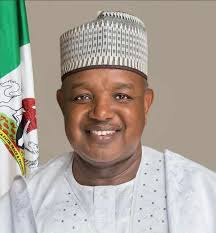Senator Abubakar Bagudu, Nigeria’s Minister of Budget and Economic Planning, assured that the Federal Government would meet its N36.35 trillion revenue target in the 2025 budget. Speaking at the National Assembly Joint Committees on Finance hearing, Bagudu highlighted the positive impact of President Bola Tinubu’s economic reforms, including the removal of fuel and foreign exchange subsidies, which have already led to increased revenue for all government levels.
The minister stressed that Nigeria’s revenue trajectory would continue to rise due to these reforms and emphasized that revenue-generating agencies, including Government-Owned Enterprises (GOEs), had been directed to increase operations to boost government income. He also pointed out that oil production would be ramped up at reduced costs, further contributing to the nation’s revenue base.
While the 2025 budget proposes a N49.74 trillion expenditure, including a 13.08 trillion deficit, Bagudu expressed confidence that the government’s targeted N36.35 trillion revenue would be achieved. The budget’s assumptions, based on 2.06 million barrels per day oil production, $75 per barrel, N1,500/$ exchange rate, and 4.6% GDP growth, form the foundation of the revenue strategy.
Bagudu also discussed lessons learned from the 2024 budget, emphasizing that the government’s focus on removing fuel subsidies and deregulating the foreign exchange market would lead to improved revenue generation in 2025. He concluded by reiterating the importance of cooperation between the executive and the National Assembly to meet the ambitious projections.
In related developments, the House of Representatives Committee on Defence decided to raise the allocation for the Ministry of Defence to support the fight against insecurity, while the Foreign Affairs Committee rejected the “envelope budgeting” system for the Ministry of Foreign Affairs, demanding better allocations to reflect actual needs.
Bagudu expressed optimism that with the support of the National Assembly and ongoing reforms, Nigeria could achieve its 2025 fiscal goals.
